What Is a Huskypoo? Huskydoodle Guide (with photos)
These days, it seems that there’s a new Doodle breed emerging every time you talk with a dog owner on the street. And the Huskypoo is no different—this up-and-coming dog breed is a cross between the Siberian Husky and Poodle.
So, if you love both of these breeds and are excited about the possibility of welcoming one into your home, our Huskydoodle guide will share the must-knows of Huskydoodle ownership.
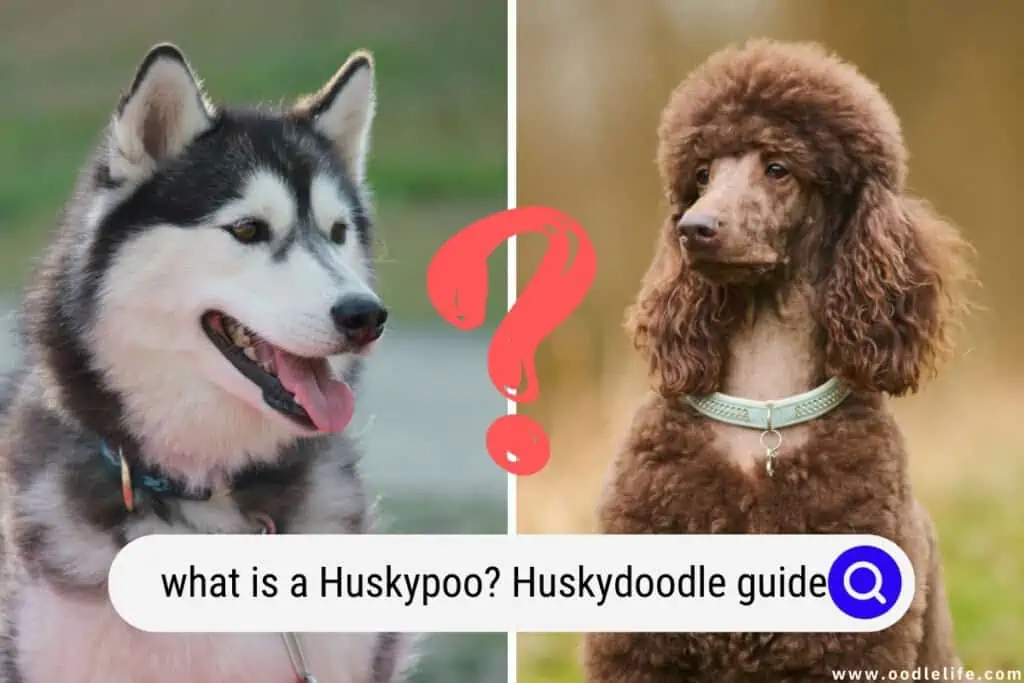
The Huskypoo Basics
The Huskypoo is one of the newer dog breeds, which involves breeding a Siberian Husky with a Poodle. These dogs go by several names other than “Huskypoo,” including:
- Siberpoo
- Poosky
- Siberian Poodle
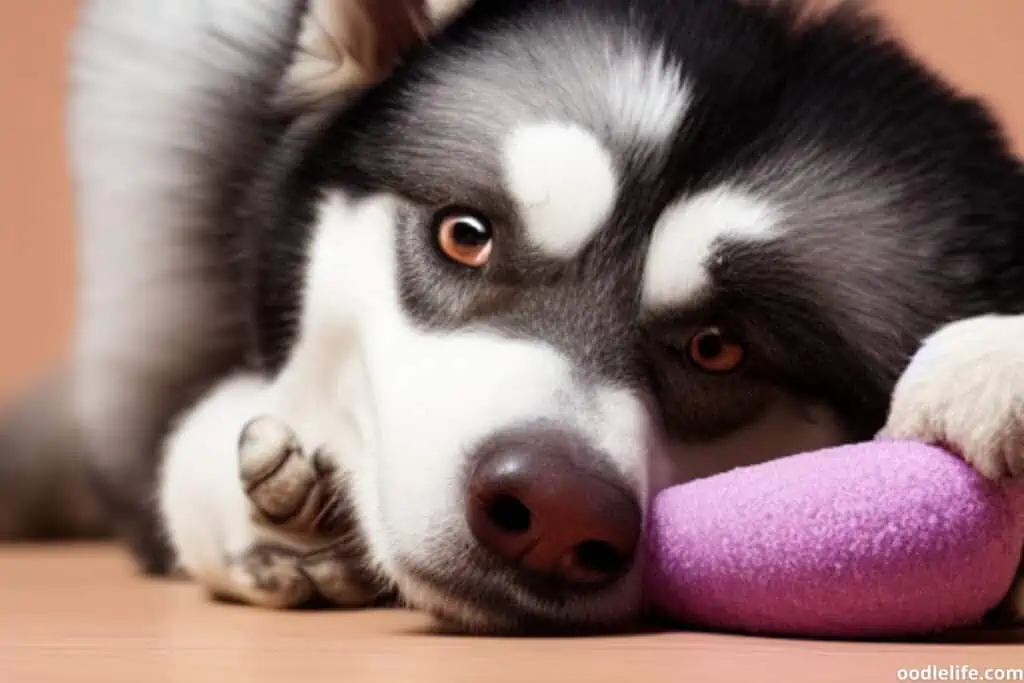
To better understand the physical and behavioral characteristics of Huskypoos, let’s explore its parents’ backgrounds.
Siberian Husky
Unlike the Huskypoo, the Kennel Clubs recognize both of the Huskypoo’s parents as official breeds. The clubs classify Huskies as a large dog, measuring 21 to 23.5 inches from paw to shoulder height and weighing 45 – 50 pounds.
The Siberian Husky originated in northeast Asia, where the Chukchi people used these dogs to pull sleighs. As a result, Huskies have an excellent tolerance for cold weather, as the temperature where they’re from can drop to negative 100 degrees.
Siberian Huskies have wonderful personalities, being well-mannered with children and getting along well with other dogs. They love to play and will run up to strangers, making them inadequate as watchdogs—a trait many families love.
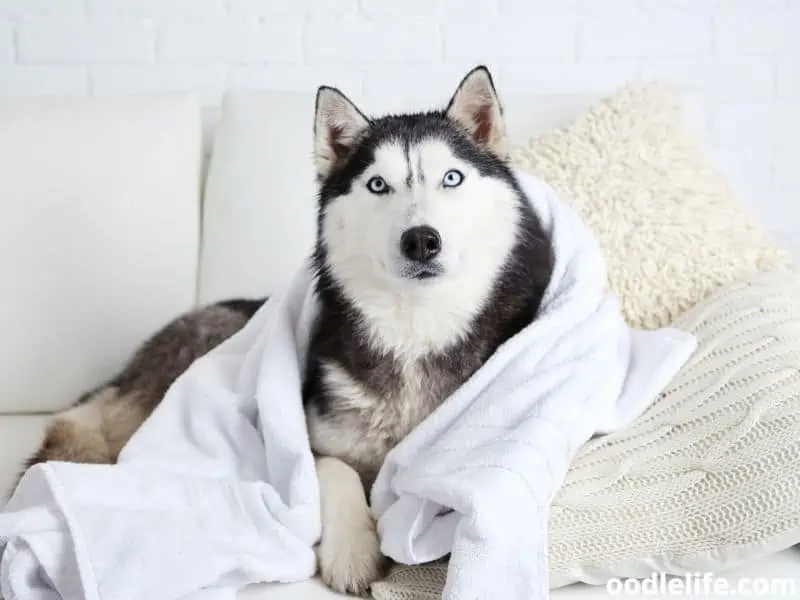
Poodle
Unlike Siberian Huskies, Poodles come in the following three sizes:
- Standard (over 15 inches tall)
- Miniature (10 to 15 inches tall)
- Toy (Less than 10 inches tall)
For this reason, Huskypoos range in size, as their height largely depends on the size of their Poodle parent.
Like Huskies, Poodles are excellent with children and great with strangers. They’re not quite as good around other dogs, given that they can display a protective streak, but socialization at a young age can improve their interaction with fellow canines.
Poodles are also highly protective and make excellent watchdogs. So, Huskypoos have a chance of inheriting this trait. They also might inherit the Husky’s passive trait or have a combination of the two.
As with Huskies, Poodles are highly intelligent. Therefore, they require plenty of mental stimulation to stay happy and prevent boredom.
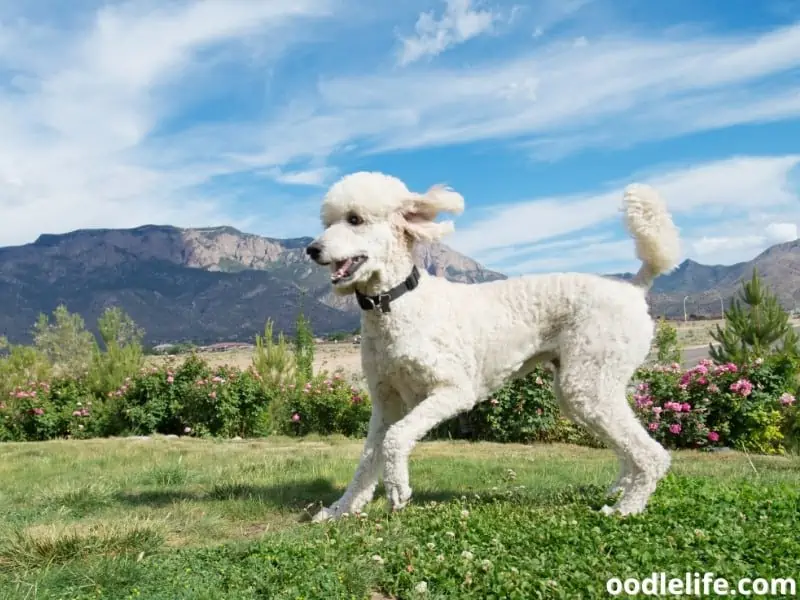
Huskypoo Characteristics
Most people can imagine what a Siberian Husky and Poodle look like without needing photos.
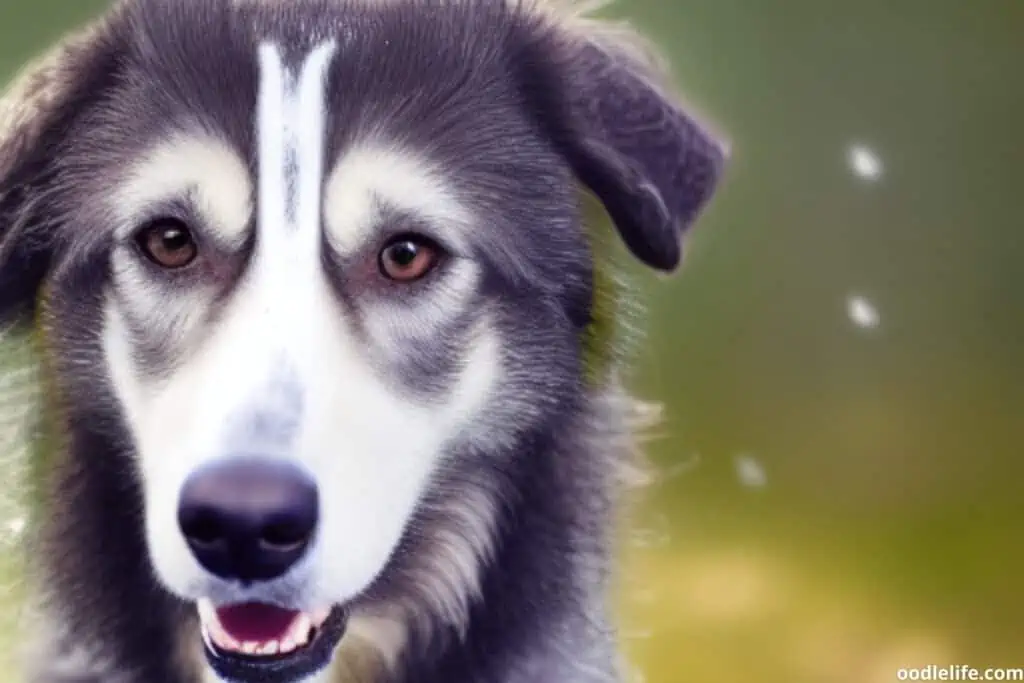
But picturing their offspring can leave a lot to the imagination, and for a good reason—Huskypoos don’t have a one-size-fits-all appearance, given that their physical characteristics depend on the genes they inherit from their moms and dads.
Generally speaking, Huskypoos can have one or more of the following characteristics:
- Double layer of hair
- Shaggy or curly hair
- 13 to 22 inches tall
- 45 – 60 pounds
- Blue or brown eyes
Your Huskypoo’s coat style will vary significantly according to their inherited genes. For example, if they inherit more of their Poodle parent’s genes, they’ll have a curlier coat with more hypoallergenic properties.
In contrast, Huskypoos that inherit more of their Siberian Husky parent’s genes will have shaggier coats with longer hair.
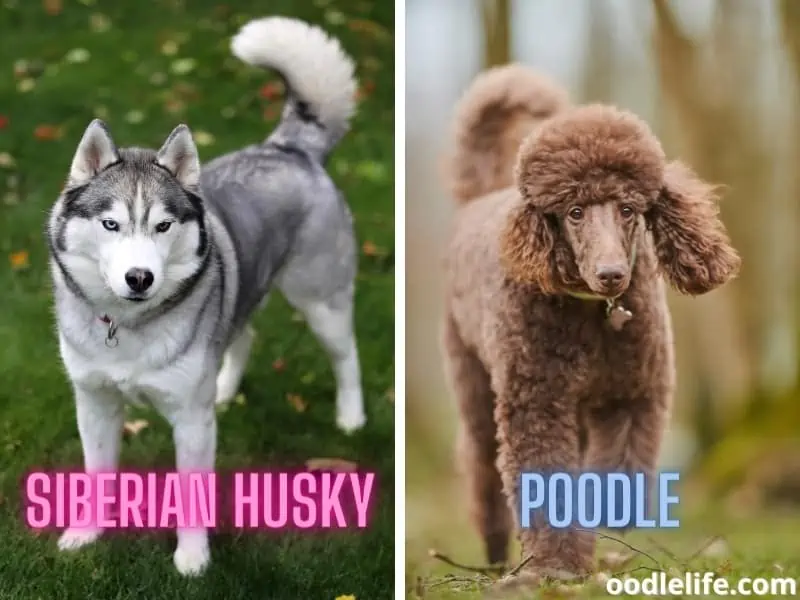
Coat Color
A Huskypoo’s coat color varies as widely as its size and fur style. Its most common to encounter these dogs in a tricolor of gray, black, and white. However, other colors that can mix with these include:
- Red
- Brown
- Apricot
Such colors come from the Poodle parent. While it’s common for Huskypoos to have a mix of two or more colors on their fur, in some cases, they might inherit their Poodle parent’s solid coat.
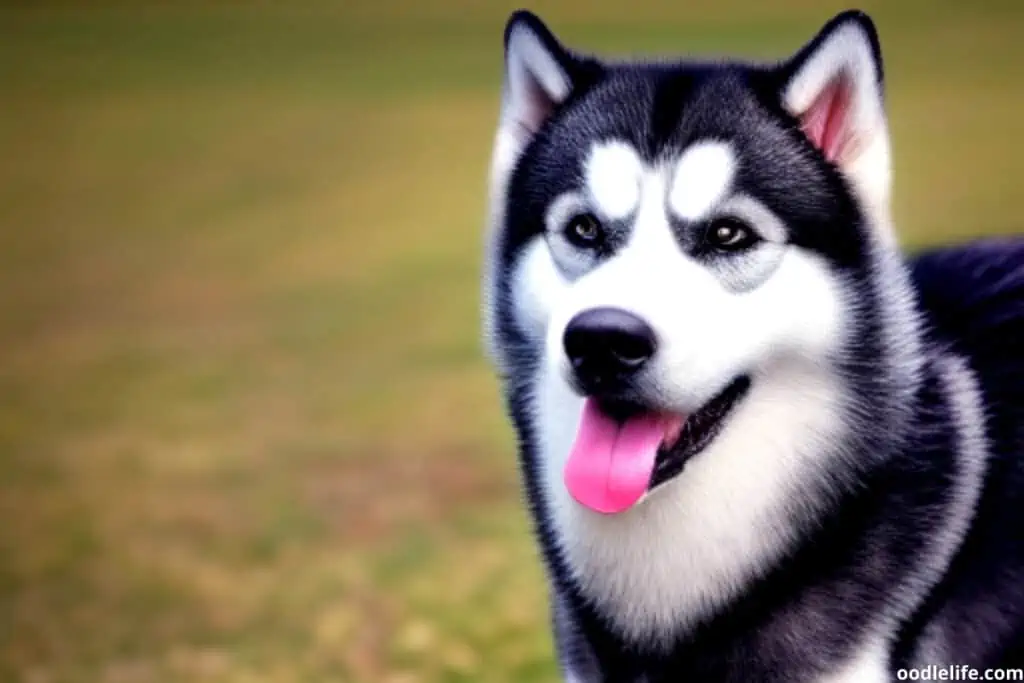
Is It Easy to Train a Huskypoo?
Training a Huskypoo is easy, especially if you start training as a puppy. Both of the Huskypoo’s parents are eager and quick learners. They love a good challenge, meaning you’ll need to change up their training routine and difficulty often to keep them from getting bored.
Whereas you probably won’t need to train Huskypoos to eliminate aggressive behaviors, these dogs can be mischievous and destructive. If you notice your Huskypoo destroying your furniture, though, I recommend assessing whether they’re getting enough exercise.
Often, you can trace a Huskypoo’s poor behavior to a mistake on the owner’s part since, overall, this breed is a joy to own and train.
Huskypoo Exercise Requirements
If you only take away only a couple of items from this Huskydoodle guide, let this be one of them: Huskydoodles should have at least 60 minutes of exercise per day.
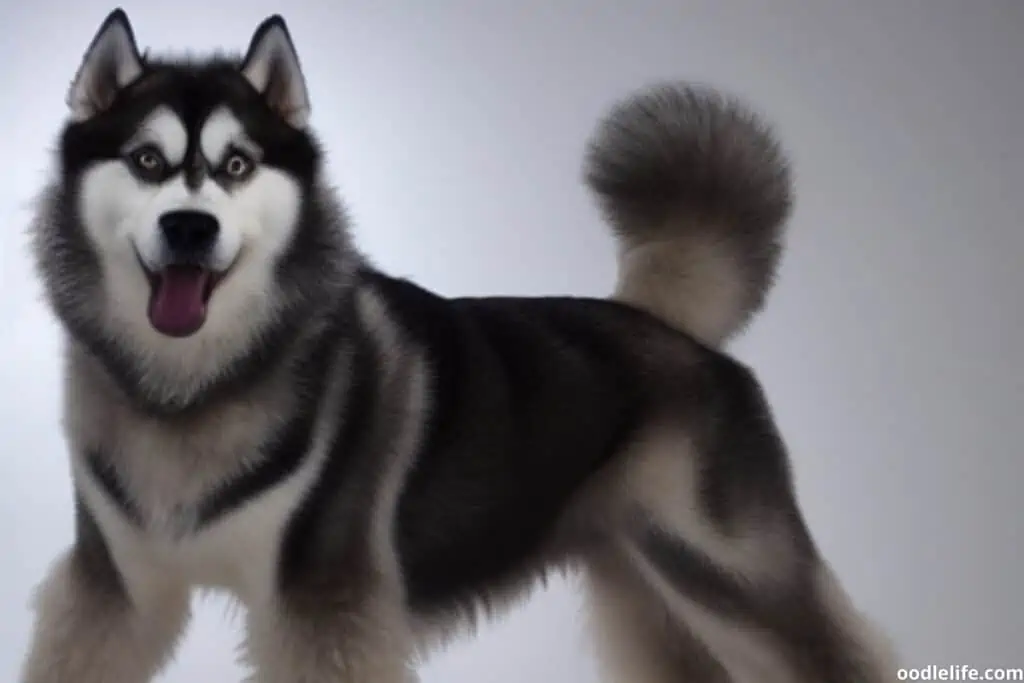
It’s best to break up this exercise into two chunks when possible. Furthermore, taking your Huskydoodle on a casual walk is fine for one of those sessions. But since these dogs have a lot of energy, you should take them to a dog park or play with them in the backyard, allowing them time for high-intensity exercise.
As your Huskydoodle ages, the length and intensity of the exercise they’ll need will naturally decrease. So, adapt the activity level according to your Huskydoodle’s ability, and take them to the vet if you notice any sudden drops in their desire to exercise.
High Energy Dogs
Huskydoodles fall under the “high energy” category for dogs. Yes, they could fool you into thinking they’re lap dogs by snuggling into your lap at the end of the day. But when it comes down to it, these dogs will need lots of space and playtime to expend their energy.
So, Huskypoos aren’t a good fit for people with small spaces or those who don’t have a large backyard or nearby dog park. These dogs need lots of space so they can use up their energy.
Because Huskypoos have so much energy, they’re also known for talking a lot. They may not full-out bark in your home, but it’s common for them to be vocal about their needs (like wanting attention or that treat they know you keep in the pantry).
All About Huskypoo Health
Generally speaking, hybrid dogs have a lower chance of health issues than purebreds. So, you’ve got this going for you when bringing home a Huskypoo compared to a pure Siberian Husky or Poodle.
Nevertheless, Huskypoos aren’t immune to health problems. Some of the most common conditions they can develop include:
- Cataracts
- Epilepsy
- Progressive retinal atrophy
- Hypothyroidism
- Hip dysplasia
The good news is that by feeding your Huskypoo a high-quality diet, giving them regular exercise, and taking them to annual vet appointments, you can expect to enjoy anywhere from 10 to 14 years with your beloved pet.
Grooming Recommendations
The frequency and type of grooming your Huskypoo needs will depend on the type of coat they inherit from their parents. In either case, most of these dogs have hair that mats easily.
So, you should brush them multiple times per week at a minimum. You’ll also need to take them to the groomer on occasion for hair trims, although full-out shaving likely won’t be necessary, unlike their Poodle parent.
If your Huskypoo inherits more of their Poodle parent’s fur, they’ll shed less, but you’ll need to groom them more frequently. In contrast, Huskypoos with hair predominantly like a Husky’s don’t need quite as frequent grooming, but you’ll need to vacuum your floor more frequently.
The bottom line is that every Huskypoo has different grooming needs. So, you’ll need to feel out the proper grooming timeframe for your pooch.
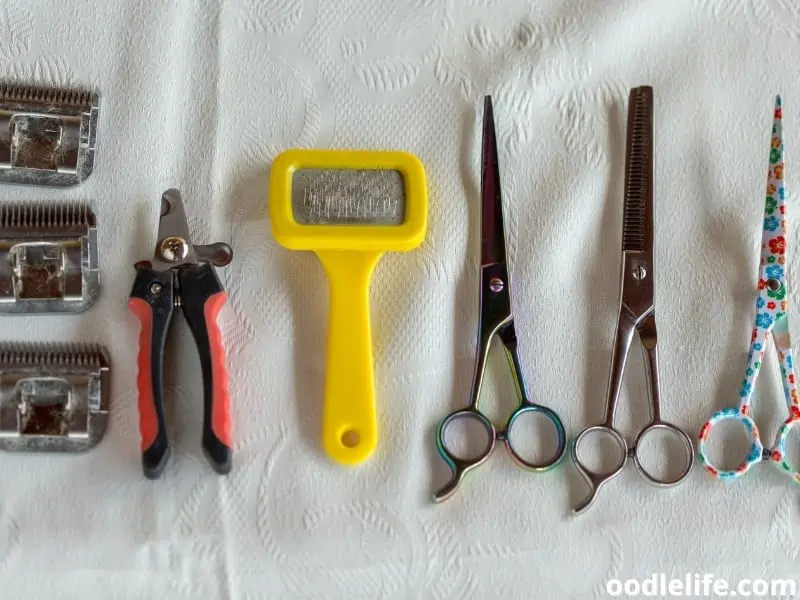
Is the Huskypoo Expensive?
Huskypoos can cost anywhere from $850 – $1,200. They’re far from cheap, although you could pay even more than that for one of their purebred parents, especially if they have show-quality lineage.
If your eyes doubled in size at reading this price range, I encourage you to call around to your local animal shelters. Although the Huskypoo is a relatively new and less common breed, you and your dog-to-be might get lucky.
Most shelters offer the opportunity to get on a waitlist for a particular breed if they don’t currently have them at their facility.
Welcoming a Huskypoo Into Your Home
Huskypoos are outstanding pets, especially if you want a dog that’s good with children, strangers, and other dogs.
Although you never know what physical traits you’ll get with a Huskypoo, part of the fun is knowing that each dog is unique, even within the same litter. I hope this Huskydoodle guide has given you a better feel for whether this is the best-fit breed for your situation.
If so, why wait? A Huskydoodle could be out there now, waiting to receive and shower you with affection.